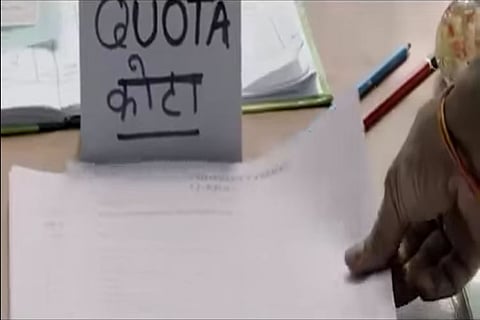

In the latest advertisement as part of its Hawa Badlegi campaign, Havells India revealed the latent anti-reservation feelings that infect much of India Inc’s thinking. The campaign advertising the company’s line of fans aims to showcase instances of “progressive” thinking that show the “winds of change” blowing in the country.
In the ad, a father and daughter are presumably picking up application forms at a college. When the father picks up a form from the stack titled “Quota”, the daughter makes him put it back and picks up another from the “General” stack. While her father tries to convince her to apply under a quota, she resolutely refuses. The song running in the background says, “I’m standing on my own/I do not want a ladder. I am the next generation/I am a self-respecting fan/I don’t blow winds that betray the country.”
The message from the ad is pretty clear. If having self-respect and standing on your own means not applying for reserved seats in a college, then those who do apply for these seats don’t have self-respect. Reservations are an unfair ladder up that people shouldn’t make use of.
The ad comes at a time when students across the country are continuing to simmer with anger over the death of Rohith Vemula, a Dalit scholar at the University of Hyderabad, allegedly as a result of systematic, casteist bias against him and other Dalit students. Whether the ad was made out of sheer ignorance, or a deliberate desire to make a statement against reservations, its timing is disturbing, but not really shocking.
After all, repeated studies have shown how the private sector in India displays a clear caste bias in terms of recruitment, which then reflects in the demographic distribution of most companies. One study, in particular, by Sukhadeo Thorat and Paul Attewel showed that if the same applications are sent to companies with only names changed to indicate caste identity, the applications featuring Dalit names are 33 per cent less likely to be called for interviews than those featuring upper caste names.
One can ask whether India’s burgeoning private sector can legitimately deal with questions of caste when it continues to maintain caste distinctions in the way it recruits and peoples its many members.
Havells India has removed the video from its Youtube and Facebook pages, and has issued an apology on Facebook.
But will this lead to a genuine conversation about caste in Havells and perhaps elsewhere in India Inc?